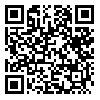Volume 4, Issue 3 (2014)
ORMR 2014, 4(3): 72-98 |
Back to browse issues page
Download citation:
BibTeX | RIS | EndNote | Medlars | ProCite | Reference Manager | RefWorks
Send citation to:



BibTeX | RIS | EndNote | Medlars | ProCite | Reference Manager | RefWorks
Send citation to:
Khodadad Hosseini S H, Abdi B, Hassanzadeh A, Ahmadi A M. Iran’s transition to learning economy: Organizational implications. ORMR 2014; 4 (3) :72-98
URL: http://ormr.modares.ac.ir/article-28-4878-en.html
URL: http://ormr.modares.ac.ir/article-28-4878-en.html
1- Professor, Department of Management, Faculty of Management and Economics at Tarbiat Modares University, Tehran, Iran
2- Ph.D Science and Technology Policy, Faculty of Management and Economics, Tarbiat Modares University, Tehran, Iran
3- Associate Professor, Department of Information Technology Management, Faculty of Management and Economics at Tarbiat Modarres University, Tehran, Iran
4- . Assistant Professor, Institute of Economics, Tarbiat Modares University, Tehran, Iran
2- Ph.D Science and Technology Policy, Faculty of Management and Economics, Tarbiat Modares University, Tehran, Iran
3- Associate Professor, Department of Information Technology Management, Faculty of Management and Economics at Tarbiat Modarres University, Tehran, Iran
4- . Assistant Professor, Institute of Economics, Tarbiat Modares University, Tehran, Iran
Abstract: (9549 Views)
In developing countries, innovation is less than expectation, so these countries require to consider a different development paradigm such as learning economy that focus on active learning and the “doing, using and interacting” innovation approach for introducing the required context for creating and diffusing informal interaction that may result to technical knowledge acquisition. In this paper, the effective factors on Iran’s transition to learning economy have been identified. Research approach is inductive and qualitative and themes and components have been identifies based on grounded theory. By considering the importance and role of organization in relation with determined themes and components, organizational implications for Iran’s transition to learning economy include learning organization, organizational unlearning, policy learning and organizational capacity, and absorptive capacity and organizational capability have been investigated.
Keywords: Learning Economy, Organizational Unlearning, Policy Learning and Organizational Capacity, Absorptive Capacity and Organizational Capability, Grounded Theory
Article Type: Research Paper |
Subject:
-
Received: 2014/03/9 | Accepted: 2014/10/6 | Published: 2015/02/20
Received: 2014/03/9 | Accepted: 2014/10/6 | Published: 2015/02/20
| Rights and permissions | |
 |
This work is licensed under a Creative Commons Attribution-NonCommercial 4.0 International License. |







